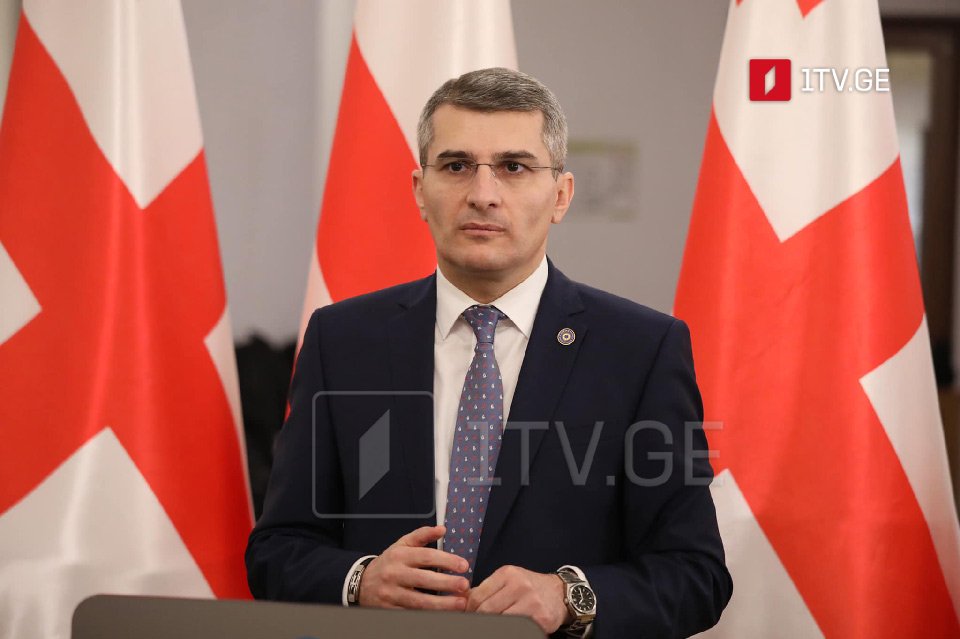MP Mdinaradze says the Georgian transparency bill bears no bans unlike in other countries, neither affects physical individuals
There is not a single prohibition in the Georgian bill, unlike the laws of other countries. The difference from the legislation of other countries is that a physical individual is also required to register in the appropriate registry in some countries. This measure will not be taken in Georgia, said the leader of the parliamentary majority, Mamuka Mdinaradze.
According to Mdinaradze, the idea of transparency and its reflection in the law cannot separate the country from Europe.
“Yesterday showed a lot. It also showed that this is one of the reasons why the draft law on Transparency of Foreign Influence cannot be subjected to any criticism, although the stigmatization of this law has begun for more than a year. We must explain to the population and society what the bill provides. The bill provides for transparency, which means that organizations, media and non-governmental organizations that receive more than 20 per cent of their income annually from abroad, from any country in the world, must be registered in the appropriate register as organizations pursuing the interests of a foreign power. Submit a financial statement detailing their income and expenses every January. This is the only obligation that media and non-governmental organizations have. Unlike the similar laws of other countries, the Georgian bill does not contain any ban. It is also that a physical individual receiving relevant funding from abroad is also required to register with the relevant registry in some countries. This will not apply in Georgia after this law is enacted, and no physical individual will be affected by the law. The rest is practically technical articles relating to monitoring, procedures, registration rules, etc.,” Mdinaradze said.
According to the parliamentary majority leader, European democracy is entirely built on transparency and other fundamental principles of democracy. And how the idea of transparency may not be acceptable to Georgia?!
“The goal of transparency is not an end in itself. When countries ensure transparency in their country, this is regulated by law. But publicity and transparency are not the special purpose of the law. The point is to ensure them, in addition to the good deeds that NGO representatives are doing in the country, to insure them and prevent various problems. Prevention of such problems in Georgia may be associated, for example, with polarization, radicalization, religious extremism, weakening of state institutions, promotion of an unconventional lifestyle, and financing of radical revolutionary goals of parties. These are the inherent risks that accompany grant funding from any country in the future or current reality. A conditional percentage, say 60-70%, is used for respectful purposes, and then the remaining 30%, 40% or 25%, are conditionally used for illegitimate purposes and anti-state activities. We have seen this many times. For example, Franklin Club, Canvas, and ISFED falsify data from parallel vote counting. External players financed all of them. While European democracy is entirely built on transparency and other fundamental principles of democracy, how can the idea of transparency and its reflection in law separate us from Europe,” Mdinaradze said.
Mdinaradze called on MPs to support the bill.
I ask for the support of everyone, including the opposition, since the speculative narrative that serves to disguise this law, the Georgian law, the Georgian law on transparency, is becoming very widespread. Otherwise, I would have asked them to name only one article or point of the law, which they were unable to do during the entire committee meeting yesterday. If they apply the same rule today, then society will assume that they don’t want to and have no arguments,” Mdinaradze said.

